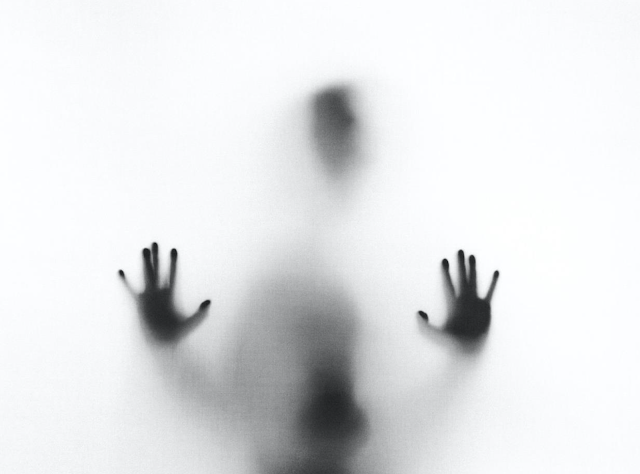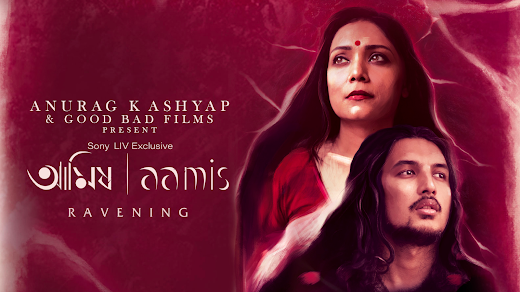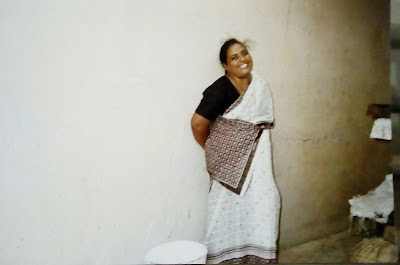Dear Zindagi ‧ 2016 ‧ A Journey of Self Discovery & Healing
"Why do we always choose the difficult path? What's the point? What's wrong with looking for an easy way out, and what if it is the best way? We never know."
- Dr. Jehangir Khan
"Dear Zindagi" is an exceptional film that delves into the complexities of human emotions. It beautifully portrays the journey of a young woman finding solace and self-discovery through therapy, offering viewers a captivating cinematic experience. Directed by Gauri Shinde, the movie delves into the lesser-explored mental health realm often overlooked in mainstream cinema.
At its core, "Dear Zindagi" revolves around the life of Kaira (played by Alia Bhatt), a talented cinematographer struggling to find meaning and happiness in her personal and professional life. The film provides an intimate portrayal of her journey, weaving together a tapestry of emotions, self-reflection, and self-discovery. With the help of a compassionate therapist, Dr. Jehangir "Jug" Khan (played by Shah Rukh Khan), Kaira embarks on a transformative quest to heal her inner turmoil and reclaim her zest for life.
One of the movie's strengths is its authentic and sensitive portrayal of mental health issues. It sheds light on the significance of seeking professional help and addresses the stigma surrounding therapy. "Dear Zindagi" powerfully emphasizes that seeking therapy is not a sign of weakness but a courageous step toward healing. The script delicately highlights the impact of childhood experiences, societal pressures, and relationship dynamics on an individual's mental well-being.
Through poignant flashbacks, "Dear Zindagi" captures Kaira's strained relationship with her parents, significantly shaping her emotional struggles. These conflicts between Kaira and her parents are skillfully interwoven with Kaira's journey of self-discovery and healing. The flashbacks provide valuable insights into Kaira's upbringing, helping viewers understand the roots of her emotional struggles.
The film reveals that Kaira grew up with her grandparents in a different city while her parents pursued their careers elsewhere. This physical separation from her parents and the lack of their presence during her formative years create a sense of longing and emotional detachment within Kaira. She yearns for their attention, validation, and love.
Kaira writes letters to her parents to cope with her feelings of abandonment, pouring out her emotions and expectations in the hope of receiving a response. These letters symbolize her desperate need for connection and her yearning for their recognition. They represent her unfulfilled emotional needs and her attempt to bridge the emotional gap between herself and her parents.
However, despite Kaira's efforts, she does not receive the response she longs for. The lack of care intensifies her feelings of rejection and further reinforces her sense of being unheard. This experience deepens her emotional wounds, leading to a fear of rejection and a belief that she is unworthy of love and acceptance.
The conflict between Kaira and her parents profoundly impacts her past and present relationships, particularly her difficulty sustaining romantic relationships. Kaira becomes guarded, fearing vulnerability and emotional pain. She finds it hard to fully open up as she has internalized a deep-seated belief that she will be let down or betrayed. As a result, she develops trust issues and struggles to form authentic connections with others.
Throughout the film, Kaira experiences a series of failed relationships, which catalyze her introspection and growth. The film explores her romantic encounters, highlighting her inability to stay in a relationship and the patterns that emerge from her past experiences. In addition, it becomes evident that her unresolved conflicts with her parents play a significant role in her romantic challenges.
In addition, depicting these conflicts adds depth to Kaira's character, evoking empathy and highlighting the importance of addressing childhood wounds to move forward. Kaira's story resonates with many individuals who have experienced parental absence or emotional neglect, highlighting its profound impact on one's psychological and emotional development. It serves as a reminder of the significance of parental love and emotional support in a child's life. In addition, it underscores the long-lasting effects of unresolved childhood wounds on adult relationships.
By addressing her past and seeking therapy, Kaira gradually confronts her deep-rooted issues and begins to heal. The therapy sessions with Jug are pivotal in her journey of self-discovery and emotional healing. Through introspection, self-reflection, and confronting her childhood wounds, Kaira gains insight into her behavior patterns and develops a better understanding of herself.
The character of Dr. Jug Khan is an embodiment of wisdom and compassion, skillfully guiding Kaira through her emotional maze. His unconventional therapeutic techniques and thought-provoking insights create an atmosphere of introspection, allowing the audience to reflect on their lives. Shah Rukh Khan's portrayal of Dr. Jug Khan is commendable, as he effortlessly conveys the complexities of a therapist-client relationship and inspires viewers to seek guidance when facing emotional challenges. The sessions between Kaira and Jug are poignant and enlightening, showcasing the importance of dialogue, introspection, and confronting one's past traumas to pave the way for personal growth. Furthermore, by portraying Kaira's struggles with anxiety and depression, the movie aims to destigmatize these conditions and promote empathy and understanding.
As the film progresses, Kaira learns to relinquish her fear and embrace vulnerability. She begins to value herself, her emotions, and her needs.
The moment when Kaira realizes that her parents are just other individuals, separate from their roles as parents, is a powerful and transformative realization. Kaira had placed her parents on a pedestal for so long, setting unrealistic expectations of fulfilling her emotional needs and validate her worth. However, this realization dawns upon her that her parents have their insecurities, limitations, struggles, dreams, and shortcomings like everyone else. They are not perfect beings solely responsible for her happiness or emotional fulfillment. It is an eye-opener that shatters her long-held perceptions and enables her to see them as flawed individuals navigating their own journeys.
This newfound self-awareness empowers her to break free from the constraints of her past and form healthier relationships bringing a sense of liberation and independence.
The cinematography and music of "Dear Zindagi" add depth and meaning to the storytelling. The visuals, filled with vibrant colors and picturesque landscapes, reflect the characters' emotional states, subtly enhancing the narrative. Furthermore, the soulful soundtrack, composed by Amit Trivedi, perfectly complements the film's themes, creating an immersive experience for the viewers.
While "Dear Zindagi" shines in many aspects, there are moments where the pacing feels slightly uneven, and certain subplots could have been further developed. Nevertheless, these minor shortcomings do not significantly detract from the film's overall impact.















Comments
Post a Comment